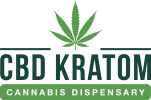Cannabis consumption continues to evolve, with various methods and products now available to cater to different personal preferences. Dabs, tinctures, and oils are all popular options that offer unique benefits and effects.
Dabbing and its Benefits
Dabbing involves the vaporization of concentrated cannabis extracts, commonly known as dabs, or concentrates. These extracts are typically high in THC or CBD and are heated on a hot surface before being inhaled. Some benefits of dabbing include:
Potency- Dabs are highly concentrated, containing a high percentage of cannabinoids. This allows for a more potent and immediate effect compared to other methods of consumption.
Quick Onset- Dabbing provides rapid onset of effects, making it ideal for individuals seeking immediate relief from symptoms such as pain or nausea.
Flavor Profiles- Dabs often retain the natural flavors and aromas of the cannabis strain they are derived from, providing a unique and flavorful experience.
Tinctures and their Benefits
Tinctures are liquid extracts made by soaking cannabis plant material, such as flower or trim, in a solvent. The solvent extracts the cannabinoids, terpenes, and other beneficial compounds from the plant material, which are blended with the base material MCT oil (medium-chain triglycerides), resulting in a concentrated liquid form. They are consumed orally by placing a few drops under the tongue or adding them to food or beverages. Some benefits of tinctures include:
Discreet Consumption- Tinctures can be consumed discreetly, as they are often packaged in small bottles and can be easily carried and used without drawing attention.
Precise Dosage- Tinctures allow for precise dosage control, as they are typically sold with a dropper that allows for accurate measurement. This makes it easier to find the right dosage for individual needs.
Longer Shelf Life- Tinctures have a longer shelf life compared to other cannabis products, making them a convenient option for long-term use.
Oils and their Benefits
Cannabis oils, similar to tinctures, are concentrated extracts that are typically derived using solvents. Perhaps the largest difference between the two is the fact that oils can be used in a variety of ways, including oral consumption, topical application, or as an ingredient in edibles, whereas tinctures are only consumed orally.
Some benefits of oils include:
Versatility- Cannabis oils can be used in multiple ways, allowing for flexibility in consumption. They can be ingested orally, applied topically for localized relief, or used in cooking and baking.
Controlled Dosage- Oils provide the ability to control dosage, as they can be easily measured and added to food or beverages. This allows for precise dosing and customization of effects.
Longer-Lasting Effects- When consumed orally, cannabis oils provide longer-lasting effects compared to inhalation methods. This makes them suitable for individuals seeking sustained relief throughout the day.
Differences Between Dabbing, Oils, and Tinctures
While dabbing, oils, and tinctures are all methods of cannabis consumption, there are some key differences between them:
Method of Consumption- Dabbing involves vaporizing concentrated extracts, while oils are typically ingested orally or applied topically. Tinctures are consumed orally, either sublingually or added to food or beverages.
Potency and Onset- Dabbing offers immediate and potent effects due to the high concentration of cannabinoids. Oils and tinctures have a slower onset but provide longer-lasting effects.
Dosage Control- Dabbing can be challenging to dose accurately, as the potency of dabs can vary. Oils and tinctures allow for a more precise dosage control with the use of droppers or measured servings.
Similarities Between Dabbing, Oils, and Tinctures
While there are differences, there are also some similarities between these methods:
Customization- Dabbing, oils, and tinctures allow for customization of effects based on individual preferences and needs. With dabbing, the potency and strain of the extract can be chosen. Oils and tinctures offer precise dosage control, allowing users to adjust their intake according to desired effects.
Potential Health Benefits- All three methods offer potential health benefits associated with cannabis consumption. The cannabinoids present in dabs, oils, and tinctures interact with the body's endocannabinoid system, which plays a role in regulating various physiological processes. These benefits may include pain relief, relaxation, and improved sleep quality.
Choosing the right method for you
When deciding which method is best for you, consider the following factors:
Desired Effects- Determine the effects you are seeking from cannabis consumption. If you prefer immediate and potent effects, dabbing may be suitable. If you prefer longer-lasting effects or a more controlled dosage, oils or tinctures may be a better choice.
Convenience- Consider the convenience of each method. Dabbing requires specialized equipment and may not be as portable as oils or tinctures. Oils and tinctures, on the other hand, offer discreet and convenient consumption options that can be easily incorporated into daily routines.
Personal Preference- Take into account your personal preferences, such as taste, aroma, and method of consumption. Dabbing provides a unique flavor profile, while oils and tinctures can be flavored or unflavored. Consider which method aligns with your preferences and enhances your overall experience.
Let CBD Kratom be your guide
Dabbing, oils, and tinctures offer distinct experiences and benefits for cannabis consumers. Understanding the differences and similarities between these methods can help you make an informed decision when choosing the right method for your cannabis consumption. Stop by one of our 60+ locations throughout Chicago, Dallas, Houston, New York City, Philadelphia, and St. Louis, and let our Doyens help you explore your options. You can also shop online and schedule some one-on-one time with one of our experts from the comfort of your home.

